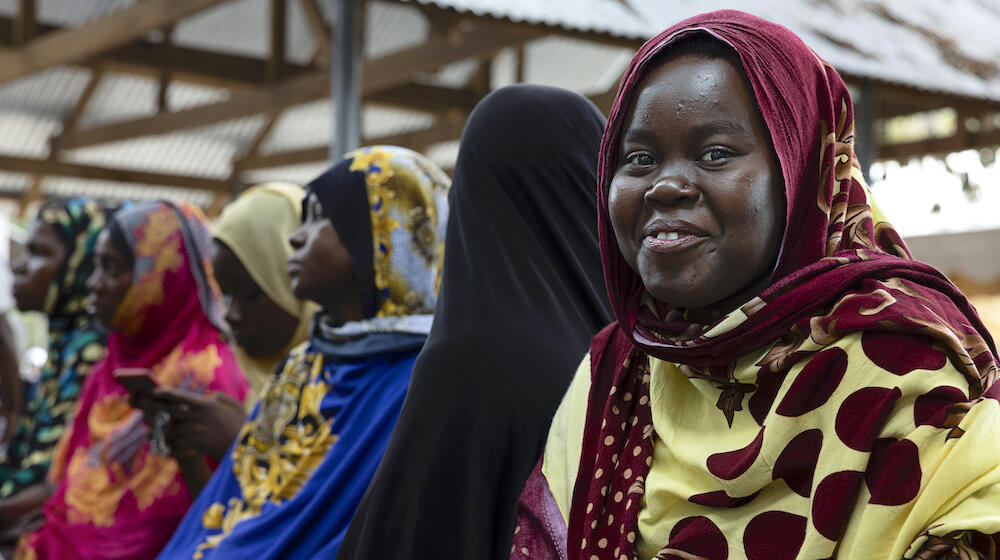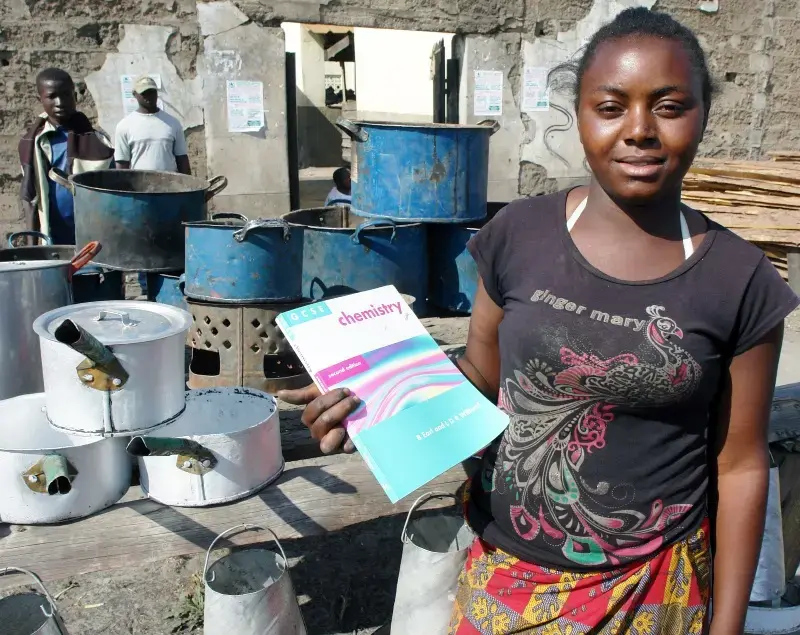Opinion editorial by Lydia Zigomo, UNFPA East and Southern Africa Regional Director
In an unequal and diverse world of over 8 billion people, we continue to traverse our differences on the same vision—achieving rights and justice for all.
We are increasingly coming together to shape a just, resilient and sustainable world, with gender equality at the heart of it all. Today, on World Population Day, we recognize the power of gender equality in unlocking our world's infinite possibilities. We amplify today more than ever the voices of women and girls, and in particular those who are most vulnerable.
In Africa, women and girls comprise 50 per cent of the total population, which means there are about 1.3 billion women and girls living on the continent today.
In East and Southern Africa, we have many stories that tell us how far we have come, where we are and how far we need to go as the clock to achieving the Sustainable Development Goals by 2030 counts down.
The story of Suzan from South Sudan is one that resonates in many parts of the world. When Suzan began menstruating at the age of 11, she was taken away from home and told to sit on a hole dug in the ground for her by her aunt, until the bleeding stopped. We are talking of sitting over a hole in the dirt for days.
This little girl assumed that by menstruating – a healthy bodily function – she must be committing some crime to incur such treatment from the women in her family and community, as isolating menstruating females was a normal practice.
In a community where cattle equate with wealth, a young girl’s needs in dealing with an important bodily process with knowledge, dignity and respect was denied, due to a cultural misunderstanding attributed to menstruation.
The story of Anna from Nkhata Bay in Malawi is equally disturbing. She returned from the field one day to find her husband sitting on the veranda in a sour mood. He wanted to sleep with her and when she refused, he tried to strike her on the head with a machete, hitting her arm twice before she managed to flee. She was referred to hospital and came close to losing her hand. Her husband is serving six years in prison.
Anna and Suzan’s stories, and thousands more like theirs, illustrate that when it comes to gender equality, we still have a long way to go.
It is disheartening that despite comprising nearly half of the global, continental, regional and national populations, the desires and aspirations of women and girls are often excluded from important decisions and far-reaching actions to scale the rights-based and people-centered interventions required to ensure rights and choices are fulfilled.
Each girl shares the same dream – the opportunity to bring her dreams to fruition.
Unfulfilled dreams lead to the violation of rights across the life cycle, and perpetuate a world that marginalizes and limits the potential of every individual, irrespective of gender. This is not just a problem for women and girls; it affects all of us and hampers our collective pursuit of a prosperous and peaceful future.
A pivotal question underlying the holy grail of gender equality relates to how to accelerate the pace and scale of action in complex, evolving, diverse and uncertain societies and nations.
Gender inequality remains a pervasive injustice that denies women and girls equitable access to health, education and learning; excludes them from financial inclusion, labour participation and leadership positions; and restricts their agency to make decisions about their health and reproductive lives. Moreover, it increases the vulnerability of at-risk populations to violence and harmful practices.
It is a stark reality that a woman dies every two minutes due to pregnancy or childbirth-related causes, a tragic statistic that demands immediate action. This not only undermines the rights and choices of women and girls but stifles the progress of entire societies.
So, how do we move forward? We need a transformative process that includes the voices and change-making roles of women, girls and other marginalized individuals across all spheres of society and all stages of humanitarian, development and peace actions.
Through harnessing the power of half the planet's population, we can confront the pressing problems of our time. The creativity, ingenuity, resources and power possessed by women and girls are essential in leveraging demographic diversity, and addressing the impact of climate change and conflict on lives and sustainable livelihoods.
Ignoring their voices and contributions will be a missed opportunity for a resilient future.
Investing in gender equality today is an investment in our shared future.
Together, we can create a world where the dreams and aspirations of all individuals are realized. A diverse and thriving world of over 8 billion people, brimming with infinite possibilities, depends on our collective efforts to build a more just, resilient and inclusive future.



